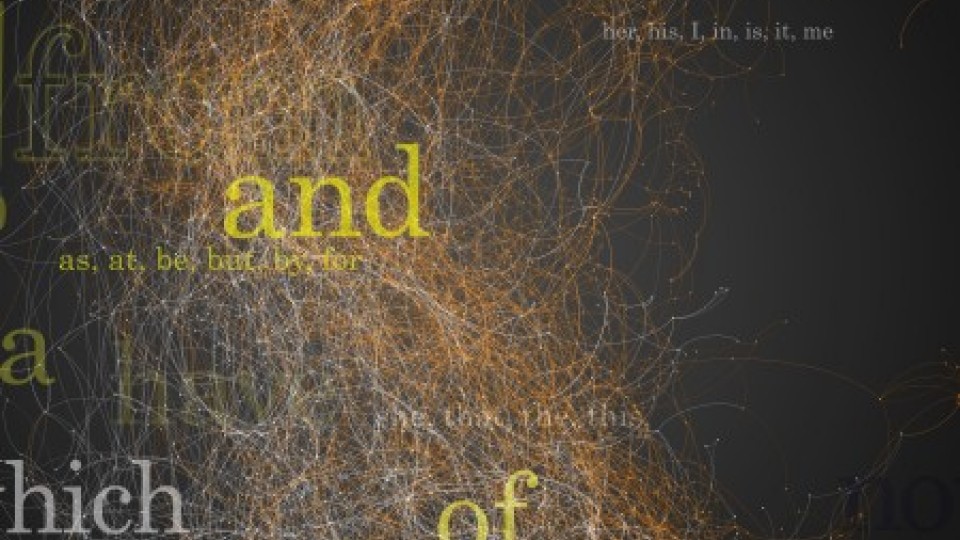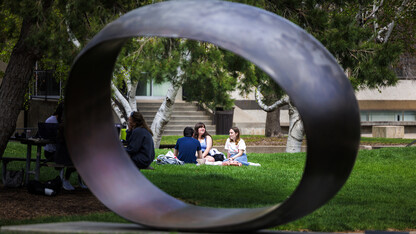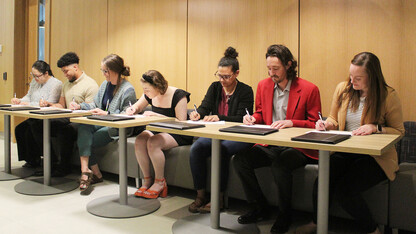· 3 min read
Digital ‘dream team’ launches project to study 1 million novels

A “dream team” of digital humanities researchers that includes Matthew Jockers of UNL will study the development of the novel, thanks to a newly announced $1.8 million grant from the Canadian government.
The award means the Nebraska Literary Lab will be “a key player in a network of research centers that will provide the next great advances in literary text mining,” said Jockers, an associate professor of English and director of the literary lab.
The six-year grant from Canada’s Social Science and Humanities Research Council was among several announced Aug. 27 by Minister of State Ed Holder at Brandon University in Manitoba. Matching contributions from other participating institutions put the total project at $3.1 million. UNL’s share during the six years is expected to total about $120,000 Canadian.
Called NovelTM, the project involves 11 investigators from three universities in Canada and six in the United States, including Jockers. Several other organizations, such as Cengage Learning, Compute Canada, Harvard University and the HathiTrust Research Center are joining in the effort.
According to project director Andrew Piper of McGill University in Montreal, the investigators will crunch data derived from more than 1 million books dating from the 18th century to the present.
Gathered from digital libraries and publishers such as HathiTrust, Early English Books Online, Gale publishing and the Orlando Project, the novels include largely forgotten popular schlock as well as timeless literary classics.
“We want the highs and lows of the novel,” Piper said. “We’re interested in studying the novel’s social significance – not just a few great books as literary studies has done in the past, but the ways novels capture a larger cultural imagination over the past three centuries.”
In addition to producing the first large-scale, cross-cultural study of the novel, the project will establish the methodological foundations of a new academic discipline and train the next generation of students to navigate the information economy.
Text mining allows researchers to identify large-scale patterns among hundreds of thousands of works, in contrast to analyzing individual works through close reading.
Jockers said the grant will enable digital humanities researchers to tackle some of the most difficult problems of large-scale text mining of novels. For example, he and his students have begun to use text mining to examine characters in novels and how they are depicted. A spring 2014 class studied how gender influenced character.
“We discovered male characters have a set of actions typical to them and female characters have actions typical to them,” he said. “We can analyze how they change over time.”
The grant will provide a significant portion of financial support for Jockers’ research over the next several years, including funding for a graduate student. Doctoral student Gabi Kirilloff, who also works for the Willa Cather Archive in its effort to digitize the letters of famed author Willa Cather, is coordinating work at the Literary Lab while Jockers is on leave during the 2014-15 academic year.
About 10 students, most at the graduate level, are pursuing research at the Literary Lab, she said. She said the NovelTM project includes an impressive list of some of the leading names in the field.
Kirilloff will accompany Jockers to a research group meeting in Montreal later this year.
Jockers said the NovelTM project aims to tackle many of the problems he’s identified in his work.
“All of these are tough nuts to crack,” he said. “I think it’s fair to say we’re working on the research agenda for the rest of my career.”








